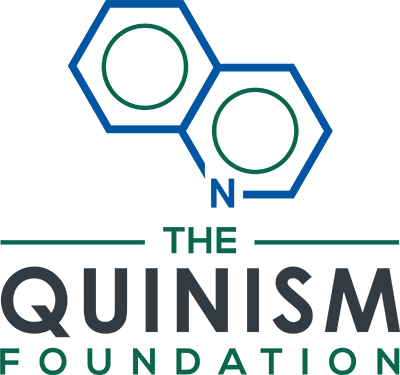The Quinism Foundation Urges Caution in the Investigational and Off-Label Use of Tafenoquine Against COVID‑19
The Neurotoxic Army-Developed Antimalarial Drug is Structurally Related to Hydroxychloroquine and Chloroquine and Carries a Risk of Potentially Severe Neuropsychiatric Adverse Effects
WHITE RIVER JUNCTION, VT. (PRWEB) JULY 22, 2020
The Quinism Foundation has called on clinical researchers and prescribers to exercise caution in the investigational and off-label use of tafenoquine against COVID‑19, following an announcement of potential in-vitro efficacy of the drug against SARS‑CoV‑2 by 60 Degrees Pharmaceuticals (“60P”), the marketers of Arakoda®-branded tafenoquine, [1] as suggested by recent unpublished research. [2]
“As its ‘quine’ suffix indicates, tafenoquine is a quinoline antimalarial drug structurally related to hydroxychloroquine and chloroquine,” said Dr. Remington Nevin, MD, MPH, DrPH, a former U.S. Army public health physician and Johns-Hopkins trained psychiatric epidemiologist and drug safety expert, who now serves as Executive Director of The Quinism Foundation.
“All quinoline antimalarial drugs are amphiphilic and diprotic weak bases, which lead to their accumulation in acidic cellular endosomes, the property thought to at least partly underlie the observed antiviral activity of certain previously-tested drugs,” said Dr. Nevin. [3,4]
“Unfortunately, as experience with hydroxychloroquine and chloroquine has shown, the same common properties that likely underlie the observed effectiveness of these quinoline antimalarial drugs in-vitro against the virus may also underlie their common dangers,” said Dr. Nevin.
“In susceptible individuals, these drugs act as idiosyncratic neurotoxicants, potentially causing irreversible brain and brainstem dysfunction, even when used at relatively low doses,” said Dr. Nevin. “This drug-induced dysfunction causes a disease of the brain and brainstem called quinoline encephalopathy, or quinism, which can be marked by lasting psychiatric and neurological symptoms including tinnitus, dizziness, vertigo, paresthesias, visual disturbances, nightmares, insomnia, anxiety, agoraphobia, paranoia, psychosis, cognitive dysfunction, depression, personality change, and suicidal thoughts, among others,” said Dr. Nevin. [5]
“In recognition of tafenoquine’s neuropsychiatric liability, the FDA has required language in the approved U.S. drug label for Arakoda® warning of a risk of severe psychotic reactions, and that those taking the drug should be promptly evaluated by a medical professional if psychiatric symptoms occur during use, such as changes in mood, anxiety, insomnia, and nightmares if they are moderate and last more than three days or are severe.” [6]
Although the unpublished research paper accompanying 60P’s announcement suggests “proof of hope” for tafenoquine against COVID‑19, in other words, an “expectation that pharmacologically relevant concentrations… can be achieved clinically and a likelihood that a relevant therapeutic index exists,” [2] Dr. Nevin notes that tafenoquine’s neurotoxicity may significantly narrow the drug’s therapeutic index for this proposed indication.
“In U.S. Army research conducted prior to 60P’s commercialization of tafenoquine, the drug was found to be the most neurotoxic quinoline among six tested, including mefloquine and chloroquine, and in cultured embryonic rat neurons, exhibited an IC50 of 12.1 μM,” said Dr. Nevin. [7] “This is less than threefold the concentration of 5.1 μM exhibiting EC90 against SARS-CoV-2 in VERO E6 cells in 60P’s unpublished research paper.” [2]
“While these results suggest promise against COVID‑19, experience with chloroquine and hydroxychloroquine should temper institutional interest in similar investigational use of tafenoquine,” said Dr. Nevin. “Patients enrolled in whatever clinical trials may proceed must be informed of tafenoquine’s inherent neurotoxicity and neuropsychiatric liability. Likewise, prescribers should exercise caution against the ill-advised off-label use of either Arakoda®- or Krintafel®-branded tafenoquine, neither of which is FDA-approved for prevention or treatment of COVID‑19.”
Dr. Nevin emphasized the importance of recognizing and properly reporting suspected adverse effects from prophylactic use of quinoline antimalarial drugs if these are used against COVID‑19. “While it may be tempting to attribute anxiety, depression, paranoia, or other mental health symptoms to the psychological effects of the COVID‑19 pandemic,” said Dr. Nevin, “these symptoms, if they occur during attempted use in prevention of disease, may be an early warning sign of idiosyncratic quinoline neurotoxicity. Likewise, more severe neuropsychiatric symptoms observed during or following attempted use of quinolines in treatment of COVID‑19, including confusion or psychosis, may not necessarily be merely neurologic complications of the disease, but may represent potentially lasting adverse effects from the drug.”
Dr. Nevin noted that suspected adverse effects from tafenoquine and related quinoline drugs may be reported to the U.S. Food and Drug Administration’s MedWatch program, at https://www.fda.gov/safety/medwatch-fda-safety-information-and-adverse-event-reporting-program.
About The Quinism Foundation
The Quinism Foundation, founded in January 2018, in White River Junction, Vermont, promotes and supports education and research on quinism, the family of medical disorders caused by exposure to quinoline drugs, including mefloquine, tafenoquine, and chloroquine.
Dr. Nevin is a board-certified occupational medicine and preventive medicine physician and former U.S. Army medical officer and epidemiologist. He is author of more than 30 scientific publications on malaria and the quinoline antimalarials, including “Neuropsychiatric Quinism: Chronic Encephalopathy Caused by Poisoning by Mefloquine and Related Quinoline Drugs,” published in the Springer Nature book, “Veteran Psychiatry in the US.”
(https://link.springer.com/chapter/10.1007/978-3-030-05384-0_20).
References
1. 60 Degrees Pharmaceuticals, LLC. 60 Degrees Pharmaceuticals Announces Positive Results of Cell Culture Testing of ARAKODA® (tafenoquine) for COVID-19. July 14, 2020. Available at: https://www.businesswire.com/news/home/20200714005355/en/60-Degrees-Pharmaceuticals-Announces-Positive-Results-Cell
2. Dow GS, Dc W, Fenner J, Yeo KR. Tafenoquine inhibits replication of SARS-Cov-2 at pharmacologically relevant concentrations in vitro. 2020. bioRxiv 2020.07.12.199059. Available at: https://doi.org/10.1101/2020.07.12.199059
3. Vincent MJ, Bergeron E, Benjannet S, et al. Chloroquine is a potent inhibitor of SARS coronavirus infection and spread. Virology journal. 2005;2:69.
4. Yao X, Ye F, Zhang M, et al. In Vitro Antiviral Activity and Projection of Optimized Dosing Design of Hydroxychloroquine for the Treatment of Severe Acute Respiratory Syndrome Coronavirus 2 (SARS-CoV-2). Clinical infectious diseases. 2020. In press. doi:10.1093/cid/ciaa237
5. Nevin RL. Neuropsychiatric Quinism: Chronic Encephalopathy Caused by Poisoning by Mefloquine and Related Quinoline Drugs. In: Ritchie EC, Llorente MD, eds. Veteran Psychiatry in the US. Cham: Springer International Publishing; 2019:315-331.
6. 60 Degrees Pharmaceuticals. Arakoda (tafenoquine) Prescribing Information. August 2018. Available at: https://www.accessdata.fda.gov/drugsatfda_docs/label/2018/210607lbl.pdf
7. Agboruche RL. 529.3 In-Vitro Toxicity Assessment of Antimalarial Drug Toxicity on Cultured Embryonic Rat Neurons, Macrophage (RAW 264.7), and Kidney Cells (VERO-CCl-81). FASEB Journal. 2009;23(1 Meeting Abstract Supplement):529.3.

